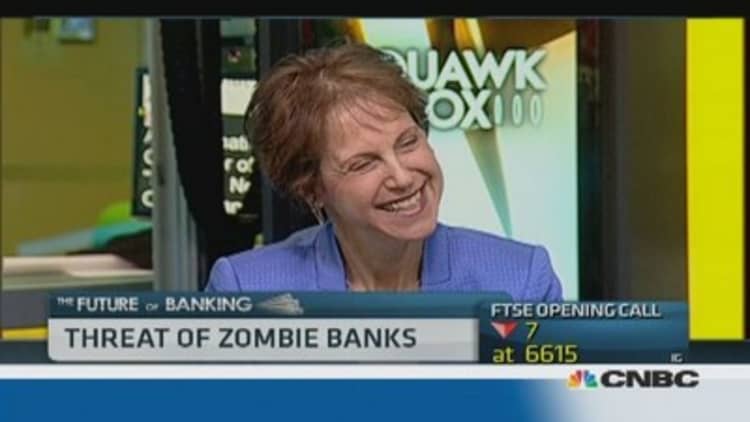The latest round of banking guidelines have gotten so complex that there may need to be another round to explain them.
In the five years since the global financial crisis, the Basel Committee has held a series of summits in an attempt to establish practices that will avoid another scenario in which banks take too much risk and wind up with not enough cash to cover losses in a downturn.
In doing so, however, the committee has made capital rules so convoluted that it may need to convene again just to clarify what it did with the latest proposals, banking analysts say.

(Read more: JPMorgan being hurt by 'outrageous' attacks: Bove)
The group recently released a paper "in which it indicates a willingness to rethink the risk-weighted asset methodology for risk measurement," said Mayra Rodriguez Valladares, managing principal at MRV Associates, in a report originally written for AmericanBanker.com.
"By the time all comments (for Basel III) are handed in on Oct. 11 and vociferously debated, the committee may well be underway to crafting Basel IV," she added.
The rules as proposed require various levels of capital to be preserved, with the guidelines ultimately used for stress tests that will begin after adoption.
They apply to banks with more than $50 billion in assets—the too-big-to-fail institutions that were blamed for so much of the damage and the trillions in bailouts during the crisis.
Basel is not alone in moving forward with banking reforms: The Federal Reserve this past week issued a new rule that will require what it calls Tier 1 common equity to be implemented when the stress tests for large bank begin in January.
(Read more: Obama's move to pack the Fed may have hit a snag)
"While the Federal Reserve outlined how covered institutions will be required to undergo the upcoming stress tests, it left open the door to additional changes in subsequent rounds," FBR Capital Markets said in a research note. "The Fed is welcoming comments on how to conduct these tests in the future and if any changes are necessary."
Leaving the door open for banks to comment on the Basel III requirements sets up a potential logistical nightmare, Rodriguez Valladares said.
"While the Basel Committee's attempt is laudable, democracy can be dangerous," she wrote. "I have no doubt that, since the committee has requested comments, the next version of Basel is likely to be even more complex."
The new rules have created controversy within the banking community, due both to their complexity and the way that assets will be classified according to risk.
(Read more: Mortgage alert: Borrowers change how they cheat)
Prior to the crisis, there was little differentiation between the level of risk in assets, making some bank balance sheets look solid even though they carried highly unstable, illiquid investments.
Rodriguez Valladares said the Basel Committee is going to have a difficult time navigating the right course, particularly if it gets bogged down in minutiae.
"Importantly, in most guidelines released this summer, the Basel Committee has been reiterating the need for transparency," she said. "We already have the tools to reform banks. We just have to use them."
—By CNBC's Jeff Cox. Follow him @JeffCoxCNBCcom on Twitter.






